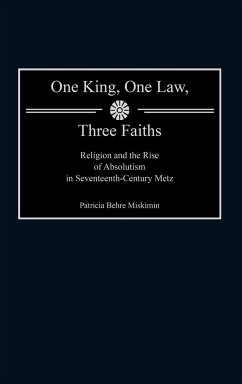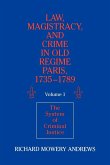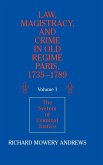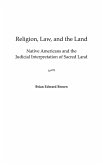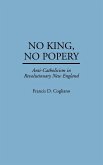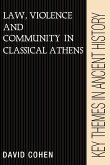Miskimin's work considers the religious feuding, hostility, and occasional cooperation of Catholics, Protestants, and Jews in 17th-century Metz. In a series of pointed chapters, she shows how the French Crown benefited from religious disagreement in the town by using that discord to push through its centralizing political agenda. Despite the disapproval of local leaders and the lack of any ideological commitment to coexistence, Catholics, Protestants, and Jews increasingly developed daily contacts in the city as the century progressed. Though these contacts were often hostile, they nonetheless continued and led to more complex interactions which undercut traditional religious verities. Using numerous examples from local court records, Miskimin explores the multilayered contacts between adherents of these three faiths in one of the only French towns to include this tripartite religious mix during this period. As a result, Metz became a convenient early laboratory for the fundamental intellectual shifts at work in Europe. Building on earlier studies of centralization, this book integrates social and religious history with major political shifts to illustrate the interdependence of members of these three groups, as well as the centrality of their clashes to an understanding of the climate of these turbulent times at the dawn of modernity.
Hinweis: Dieser Artikel kann nur an eine deutsche Lieferadresse ausgeliefert werden.
Hinweis: Dieser Artikel kann nur an eine deutsche Lieferadresse ausgeliefert werden.

